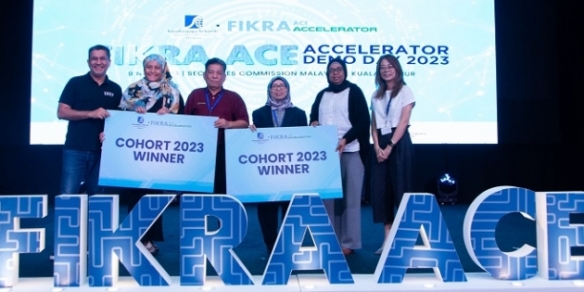Soda has more than just a ‘token’ bid to secure mobile devices
By Benjamin Cher August 12, 2015
- Winner of RSA conference APJ innovation sandbox start-up competition
- Provides the foundation layer to secure all applications across all platforms

OUR mobile devices have increasingly become digital extensions of our selves, containing sensitive data ranging from financial information and contact lists, to personal and professional communications, and even private photos.
Yet businesses continue to use unsecured devices to house and transmit sensitive corporate data.
This was what drove infocomm security expert Dr Kwok-Yan Lam and banker and financier Michael Tse to found Soda, a Singapore-based startup that has developed a virtual tokenisation layer to secure mobile devices.
Tokenisation is the process of substituting sensitive data for a non-sensitive equivalent that has no meaning or value (token).
READ ALSO: Cyber-espionage groups starting to use Hacking Team exploits: Kaspersky
Lam’s cybersecurity expertise made him ideal for cofounding such a startup. He received his PhD from Cambridge and has founded laboratories in Tsinghua University and the National University of Singapore, as well as a company called PrivyLink Pte Ltd, which specialises in e-security technologies for homeland security and financial systems.
Soda was launched in 2014 and currently has an app to encrypt data while it is in transit and also when stored on a mobile device, as well as a cloud-based file repository called Soda Box to encrypt and share files.
The Soda app is currently available for the iOS and Android platforms, as well as Windows desktops. The Soda Box is available on iOS, Android, Windows and Apple Inc’s OS X. For more information, go here.
“Soda started with our collective mission to provide a solution that addressed emerging data privacy issues stemming from consumerisation and enterprise mobility,” Lam tells Digital News Asia (DNA) via email.
“We wanted to create a solution that would make data security truly simple and universal, for everyone.
“Soda’s Virtual Token (vToken) is the first true universal token virtualisation framework for all mobile applications – across platforms, devices, and environments (including the cloud and backend systems),” he claims.
Being cross-platform gives Soda users the flexibility to use any mobile smart device, while being ensured of the same level of security, says Lam.
“With the vToken infrastructure, organisations can provide unified, strong security protection for cross-platform applications and at the same time assure privacy protection of users,” he says.
Almost fizzled

The beginnings were tough for Soda, which was founded in 2014, as it sought to change people’s mind-sets towards securing their mobile devices, says Lam (pic above).
“When you come up with a new idea, it is always challenging to convince other people that the new idea is useful and significant,” he concedes.
Pushing out the world’s first universal virtual tokenisation layer is a lot harder when customers might not be convinced they need it.
“The toughest challenge so far has been to convince potential customers that tokenisation is the future in mobile security,” Lam says.
The tide seems to have turned for Soda, however, as it was announced the winner of the Innovation Sandbox startup competition at this year’s RSA Conference Asia Pacific & Japan (RSAC APJ) in Singapore.
“The RSA award indeed helps a lot in overcoming this challenge,” Lam says.
Soda remains as tight-lipped as its fellow contestant at the competition, SafeChats, on its user base, only saying that “some government agency” in this region is using its product.
Soda offers its technology as an enterprise solution, while offering its tokenisation infrastructure as a security service for different verticals and other geographical markets through joint ventures. Lam however declines to name some of these partners.
Set to sizzle?
Lam says Soda received initial funding from angel investors, although he declines to name them.
The startup is looking into a “significant” Series A round within the next three to six months, although, again, he declines to disclose the amount it is aiming for.
Soda currently has fewer than 20 employees across Singapore, Hong Kong and the United States.
“In the next six to 12 months, we plan to double in size to support our global expansion,” Lam says.
Soda is also planning to execute large-scale deployments to validate its technology.
“In the upcoming months, we plan to execute two to three large-scale deployments with select industry leaders to further validate the technology and [our] approach to mobile security,” he says.
Related Stories:
Security startups need to look at ‘hard problems’
SafeChats aims to give messaging an encryption edge
Basic security products don't cut it anymore: IDC
Future-proofing cybersecurity: Of Mormons and moms
For more technology news and the latest updates, follow us on Twitter, LinkedIn or Like us on Facebook.


